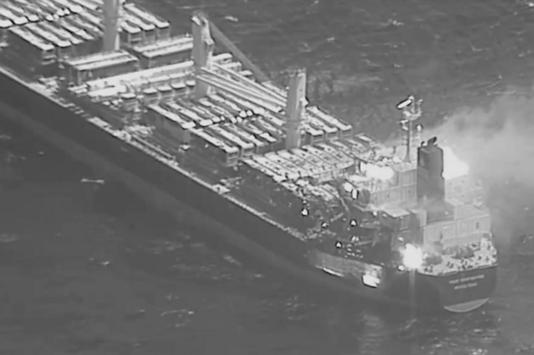In recent years, the Red Sea has become a focal point of geopolitical tension, with ongoing conflicts and security threats posing significant challenges to international shipping and regional stability. At the heart of this crisis are the Houthi rebels in Yemen, whose attacks on commercial vessels and military targets have raised concerns about the safety of maritime trade routes and the broader implications for regional security. This article aims to delve into the complexities of the Red Sea crisis, examining the motives behind Houthi aggression, the responses of key international actors, and the efforts to mitigate the risks posed by these escalating tensions.
Understanding the Houthi Threat: The Houthi rebels, officially known as Ansar Allah, emerged as a formidable force in Yemen’s complex political landscape, seizing control of the capital, Sanaa, and large swathes of territory in 2014. Backed by Iran, the Houthis have pursued a campaign of insurgency against the internationally recognized government of Yemen, leading to a devastating civil war that has claimed thousands of lives and displaced millions.
Central to the Houthi threat is their ability to target maritime traffic passing through the Red Sea and the Bab el-Mandeb strait, a crucial chokepoint connecting the Mediterranean Sea to the Indian Ocean. Through a combination of drone attacks, missile strikes, and naval ambushes, the Houthis have demonstrated their capacity to disrupt maritime trade and threaten the security of commercial shipping lanes.
Motives and Justifications: The motives behind Houthi attacks on maritime targets are multifaceted, shaped by a combination of strategic objectives, regional dynamics, and ideological considerations. At a fundamental level, the Houthis seek to challenge the influence of their adversaries, including the Saudi-led coalition and its Western backers, by targeting their economic and military interests in the region.
Moreover, the Houthi leadership frames these attacks within the broader context of resistance against perceived foreign aggression and intervention. They portray themselves as defenders of Yemeni sovereignty and champions of anti-imperialist struggle, drawing parallels between their struggle and other conflicts in the Middle East, such as the Israeli-Palestinian conflict.
International Responses and Countermeasures: In response to the growing threat posed by Houthi attacks, the international community has implemented a range of measures aimed at safeguarding maritime security and deterring further aggression. Key stakeholders, including the United States, the United Kingdom, and regional allies, have deployed naval assets to patrol the Red Sea and protect commercial shipping routes from Houthi assaults.
Furthermore, efforts have been made to disrupt Houthi supply lines and reduce their ability to launch attacks on maritime targets. This includes targeting Houthi weapon caches, intercepting arms shipments, and coordinating intelligence-sharing mechanisms to track Houthi activities in Yemen and beyond.
Challenges and Future Prospects: Despite these concerted efforts, the Red Sea crisis remains a complex and evolving challenge with no easy solutions. The porous nature of maritime borders, the proliferation of asymmetric warfare tactics, and the involvement of external actors complicate efforts to achieve a lasting resolution to the conflict.
Moreover, the humanitarian toll of the conflict cannot be overlooked, with millions of Yemenis facing food insecurity, displacement, and lack of access to essential services. Any sustainable solution to the Red Sea crisis must prioritize the restoration of stability, the protection of civilian populations, and the promotion of inclusive political dialogue to address the root causes of the conflict.
The Red Sea crisis represents a critical juncture in the geopolitics of the Middle East, with far-reaching implications for regional security and global trade. As the conflict continues to unfold, concerted international efforts are needed to address the root causes of the crisis, mitigate the risks to maritime navigation, and pave the way for a peaceful resolution to the conflict in Yemen. Only through sustained diplomatic engagement, cooperation among stakeholders, and a commitment to upholding international law can the challenges posed by the Houthi threat be effectively addressed.
